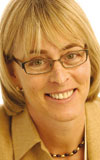
After more than 40 years of operation, DTVE is closing its doors and our website will no longer be updated daily. Thank you for all of your support.
African pay TV opportunities
 One of the main questions for 2015 will be where the new growth is going to be found in the pay TV and broadband business, writes Kate Bulkley.
One of the main questions for 2015 will be where the new growth is going to be found in the pay TV and broadband business, writes Kate Bulkley.
Finding new investment opportunities is for the committed, the visionary and the risk-takers. It means hunting out the most exciting markets for new investment and even new broadcasting ideas. One of the biggest regions with potential – as well as potential pitfalls – is Africa.
Brazil, Russia, India and China – the BRIC countries – were grouped together because they were considered the next big development opportunity. South Africa was added in 2010 (BRIC becoming BRICS). In TV, pay TV operator Naspers, operator of M-Net, MultiChoice and DStv, has been one of the big winners there, also exporting its model outside of its home country quite successfully.
More recently, investors and entrepreneurs looking for the next big growth opportunity have coined the phrase MINTS for Mexico, Indonesia, Nigeria and Turkey. Nigeria, the African member of the group, in 2014 surpassed South Africa as the biggest African economy and is home to a burgeoning indigenous film business, Nollywood, which produces about 50 films a week reportedly worth nearly US$600 million (€530 million) a year.
Nigeria has become a magnet for pay TV start-ups and entrepreneurism is alive and well there. Yet there are contradictions as well. Nigeria is a country with 50% unemployment that is trying to deal with ongoing insurgency-based violence in its northern territories and other problems.
There is demand for plain vanilla TV in Africa as well as more sophisticated services for a growing middle class. However, there are some cautionary tales in pay TV, one example being the demise of Nigerian start-up HiTV in 2011 after it overextended itself financially by buying up expensive sports rights that it then failed to monetise fast enough.
Mixed models seem to be the key to Africa where a pay TV company like Strong TV, using the brand My Tele, provides set-top boxes to rivals as well as its own pay TV services to its own customers.
Looking at the big picture, only 40% of TV homes in Africa are digital today, according to Informa Telecoms & Media. That number is expected to rocket to 90% by 2018. Euroconsult, NSR and IDATE data suggests that DTH subscribers will double globally to 137 million by 2023 with half the new subs coming from South Asia and sub-Saharan Africa. More than 120 million African homes will receive digital TV by 2018. The potential for mobile growth in Africa is also huge, because it is a ‘leapfrog’ technology, bypassing fixed line infrastructure that is either not there, not reliable or unaffordable.
East Africa in particular has strong potential, according to Helios Investment Partners, which ploughed US$45 million in as part of a US$130 million funding round for pay TV operator Wananchi in October 2014. Wananchi, which operates the Zuku TV brand, was founded in 2008 by cable TV investor Mark Schneider, a member of the Schneider family that owned one the biggest US cable systems back the 1980s. Canny moves from connecting to an international broadband pipe to feed its Kenyan customers to hiring a reliable construction firm to “normalise” the construction costs of its network, mean that it is at an “inflection point” in terms of growth, according to Helios. It helps that Wananchi is not just offering cable but also satellite-delivered DTH. It’s that mixed model approach, again.
Helios expects Wananchi to break even this year and predicts the company could grow to 900,000 paying customers in five years with US$250 million of revenue and EBITDA of US$100 million.
Not only does the upside of the investment case look good but the private equity firm also believes there will be an appetite among strategic players for Wananchi, which promises them an attractive investment exit strategy. Of course it helps that there are already two big strategic players in the investor portfolio, none other that Liberty Global, the company that Mark Schneider once ran, and Altice, the Swiss-based multinational cable and telecommunications investor. This gives Wananchi access to the scale economics necessary to keep their customer premises equipment costs down, for example.
But investors need to be careful – there’s lots of potential here, but also plenty of danger: 4G rollout in Africa is both a competitive risk to cable and satellite companies as well as a potential differentiator if you can include it in to your subscription. There is a growing middle class across Africa but different regions have different issues, including unstable political and economic situations. You only need to look at Zimbabwe, saddled with a government that stifles entrepreneurism, to know that Africa, in particular, carries as much risk as it does reward when it comes to the future of the industry.
Kate Bulkley is a broadcaster and writer specialising in media and telecommunications. [email protected]


